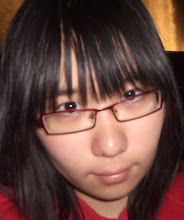You make formal sentences in basically three ways.
1. with subject
In your writing, you use formal expressions for the subject when needed. e.g. When you talk about your grandfather, your teacher, principal, ect. You can add two special words- 시 and 께서- to do this.
e.g. 어머니가 집에 온다 ->어머니께서 집에 오신다.(오+시+ㄴ+다)
There's some special words to make your sentence formal too. Of course you add 께서 next to the subject.

e.g. 할머니가 방에 있다 -> 할머니께서 방에 계신다.
아버지가 죽었다 -> 아버지께서 돌아가셨다.
2. with object
You use 께 (to) instead of 한테. There's also some special expressions needed.
아버지가 죽었다 -> 아버지께서 돌아가셨다.
2. with object
You use 께 (to) instead of 한테. There's also some special expressions needed.
e.g. 책을 선생님한테 주다 -> 책을 선생님께 드리다.
3. according to listener
The word that ends the sentence(in korean it's called 어미, which means the tail of the word) is up to who you talk to. You speak in different manners when you talk to your frineds and the principal, right? It's like that.
Below shows how the verb 하다(to do) changes.
This explains how 안녕하세요 and 안녕 are different.
3. according to listener
The word that ends the sentence(in korean it's called 어미, which means the tail of the word) is up to who you talk to. You speak in different manners when you talk to your frineds and the principal, right? It's like that.
Below shows how the verb 하다(to do) changes.
This explains how 안녕하세요 and 안녕 are different.

e.g. 안녕. (to your friend) 안녕하세요(to older people)
같이 갈래?(to your friend) 같이 가실래요?(to older people)
같이 갈래?(to your friend) 같이 가실래요?(to older people)


tod's shoes
ReplyDeletehollister outlet store
abercrombie and fitch outlet
ugg boots sale
girl jordans
coach factory outlet online
under armour clearance
coach outlet
air max 2015
michael kors outlet
michael kors outlet 75% off
nike outlet
jordan 11
dior outlet store
fitflop sale
new balance outlet
jordan shoes for kids
nike outlet store online
ferragamo shoes outlet
hermes outlet
nike shoes outlet
coach outlet store online
fitflop sale
michael kors purses
new balance outlet
juicy couture
mont blanc
oakley sunglasses outlet
clarks outlet
jordan shoes
abercrombie and fitch outlet
abercrombie and fitch
michael kors outlet
air jordan 13
kobes shoes
hermes birkin
coach clearance
20151027yxj-2